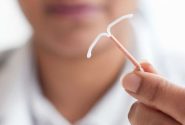MONDAY, March 20, 2017 (HealthDay News)— (Tasrir) — Catherine Laporte, M.D., Ph.D., from the University Clermont in France, and colleagues conducted a cluster randomized trial involving 77 general practitioners in France to test the efficacy of a brief intervention among cannabis users aged 15 to 25 years.
The intervention comprised an interview designed according to the feedback, responsibility, advice, menu, empathy, self-efficacy model, while the control condition was routine care. Two hundred sixty-one young cannabis users were screened and followed.
The researchers found that among all users there was no significant between-group difference in the median number of joints smoked per month after one year (17.5 versus 17.5; P = 0.13); however, among non-daily users there was a difference in favor of the intervention (3.0 versus 10.0; P = 0.01). In terms of the number of joints smoked, the intervention correlated with a more favorable change from baseline after six months (−۳۳.۳ versus 0 percent; P = 0.01). The intervention correlated with smoking of fewer joints per month among users younger than 18 years (12.5 versus 20.0; P = 0.04).
“Our results do, however, strongly support use of brief interventions for users who are younger than age 18 and for moderate, non-daily users,” the authors write.

















